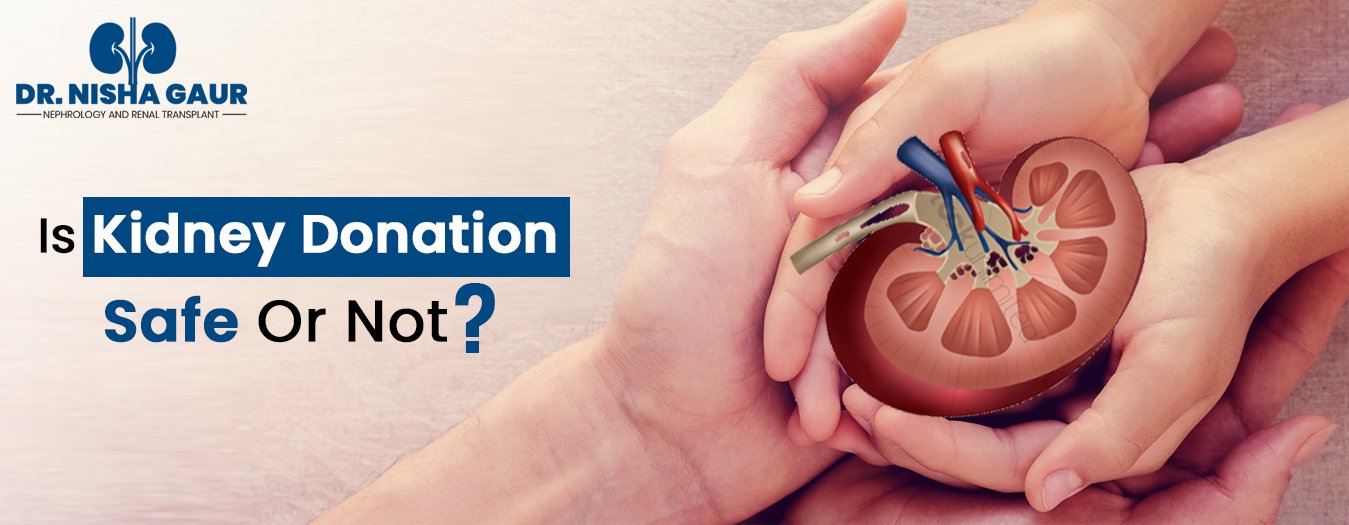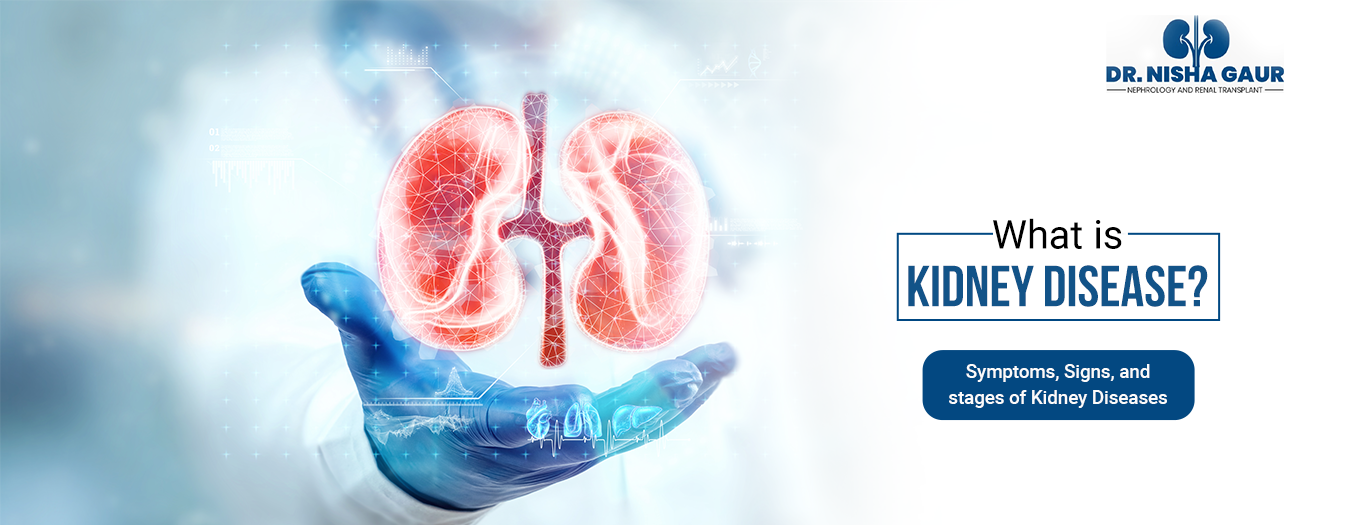Dr. Nisha Gaur discusses everything that you need to know about Chronic Kidney Disease and conditions for which you should consult a Nephrologist.
What is Chronic Kidney Disease?
The role of the kidney in the human body is to filter the blood and extract the waste from the body. Chronic kidney disease occurs when a person’s kidneys get damaged and lose the ability to filter wastes and fluid out of their blood.
If a person is suffering from chronic kidney disease then they should be treated early before their kidney gets worsen. Chronic kidney disease to a person can cause other several diseases to the person such as Type 1 & 2 diabetes, high blood pressure, polycystic kidney disease, recurrent kidney infection, and many more.
Chronic kidney disease has different stages which will be discussed below”
Note: For ease of understanding we will use the abbreviation CKD for Chronic Kidney Diseases
What are the early signs and symptoms of chronic kidney disease?
Chronic kidney disease can show multiple symptoms in a person. They vary from person to person and are non-specific. Following are the early symptoms of chronic kidney disease
- You may feel muscle cramps
- Swollen legs, feet
- Loss of appetite
- Lesser urine than before
- Constant fatigue and weakness
- Difficult sleep
- You may have nausea and vomiting
- Pain in your body
- Experiencing shortness of breath
What causes chronic kidney disease?
Given below are some of the causes of chronic kidney disease
- Prior kidney injury to a person can cause chronic kidney disease.
- Diabetes to a person can cause chronic kidney disease.
- High cholesterol issues in a person can cause chronic kidney disease.
- Blockage in the flow of urine can cause chronic kidney disease in a person.
- Inherited kidney disease to a person can lead to chronic kidney disease.
- Heavy metal poisoning can lead to chronic kidney disease
What are the various stages of chronic kidney disease?
There are 5 stages to chronic kidney disease The stages of CKD depend upon the GFR glomerular filtration rate. A person’s GFR is calculated using the amount of creatinine, waste product found in their blood, and other factors including age, race, and gender.
The following are the stages of chronic kidney disease
Stage 1
If the person’s GFR score is 90 or more than it then this is considered as stage 1 of CKD. In this stage, kidneys work well but show signs of mild kidney damage. Stage 1 can be treated through lifestyle changes and medication.
Stage 2
If the person’s GFR score is 60 to 89 then this is stage 2. In this stage, kidneys work well but have moderate signs of mild kidney damage.
Stage 3
If the person’s GFR score is 30 to 59 then this is stage 3. In this stage, kidneys start getting damaging and fail to perform their function effectively. Stage 3 of chronic kidney disease is the most common.
Stage 4
If the person’s GFR score is 15 to 29 then this is stage 4. In this stage, kidneys fail to perform the function. The kidney gets severely damaged in this stage.
Stage 5
If the person’s GFR score is less than 15 then this is stage 5. In this stage, kidneys are closer to failure and need dialysis and kidney transplantation.
Who is at risk of chronic kidney disease?
Chronic kidney disease can happen to any person at any age in their life. The following are the risk factors that increase the chances of an individual occur chronic kidney disease in a person
- If the person smokes then he/she is at risk of chronic kidney disease
- People with heart disease are at high risk of chronic kidney disease
- A person with high blood pressure problems is at high risk of chronic kidney disease
- A family history of kidney disease increases the chances of CKD
- Older people are at high risk of chronic kidney disease
When should I consult a Nephrologist?
Timely consultation from experts can save your kidneys and your life. If you suffer from any of the symptoms of chronic kidney disease then seek immediate treatment from the nephrology doctor. A nephrologist can diagnose and treat kidney diseases. Chronic kidney disease can get worsen over time, if not treated early. It can raise many other diseases in the body. Consult the best nephrologist and get rid of kidney disease.
Our previous blog- Things to consider before Kidney Donation



